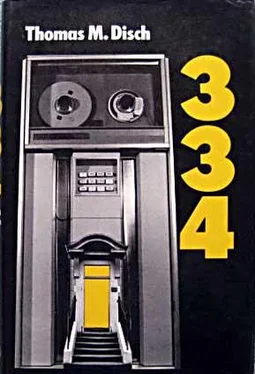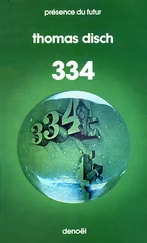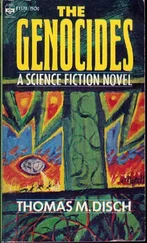There was a dull ache, a kind of hollowness, in the general area of his liver—the seat of the intelligence according to the Psychology of Aristotle—a feeling that there was someone inside his chest blowing up a balloon or that his body was that balloon. Stuck here at this desk, it tethered him. It was a swollen gum he must again and again be probing with his tongue or his finger. Yet it wasn’t, exactly, the same as being sick. There was no name for it. Professor Ohrengold was telling them about Dante. Blah, blah, blah, born in 1265. 1265 he wrote in his notebook.
His legs ached from sitting forever on this bench—there was something definite.
And Milly—that was about as definite as you could get. I may die, he thought (though it wasn’t exactly thinking), I may die of a broken heart.
Professor Ohrengold became a messy painting. Birdie stretched his legs out into the aisle, locking his knees tight and finning the thighs. He yawned. Pocahontas gave him a dirty look. He smiled.
And Professor Ohrengold was back again with “Gibble-gabble Rauschenberg and blah, blah, the hell that Dante describes is timeless. It is the hell that each of us holds inside his own most secret soul.” Shit, Birdie thought to himself, with great precision.
It was all a pile of shit. He wrote Shit in his notebook, then made the letters look three-dimensional and shaded their sides carefully. It wasn’t as though this were really education. General Studies Annexe was a joke for the regular Barnard students. Milly’d said so. Sugar on the bitter pill of something-or-other. Chocolate-covered shit.
Now Ohrengold was telling them about Florence and the Popes and such, and then he disappeared. “Okay, what is simony?” the proctor asked. No one volunteered. The proctor shrugged and turned the lecture on again. There was a picture of someone’s feet burning.
He was listening but it didn’t make any sense. Actually he wasn’t listening. He was trying to draw Milly’s face in his notebook, only he couldn’t draw very well. Except skulls. He could draw very convincing skulls, snakes, eagles, Nazi airplanes. Maybe he should have gone to art school. He turned Milly’s face into a skull with long blond hair. He felt sick.
He felt sick to his stomach. Maybe it was the candy bar he’d had in place of a hot lunch. He didn’t eat a balanced diet. A mistake. Half his life he’d been eating in cafeterias and sleeping in dorms. It was a hell of a way to live. He needed a home life, regularity. He needed a good solid fuck. When he married Milly they’d have twin beds, a two-room apartment all their own and one of the rooms with just those two beds. He imagined Milly in her spiffy little hostess uniform. Then with his eyes closed he began undressing her in his head. First the little blue jacket with the PanAm monogram over the right breast. Then he popped the snap at the waist and unzipped the zipper. The skirt slithered down over the smooth Antron of the slip. Pink. No—black, with lace along the hem. Her blouse was an old-fashioned kind, with lots of buttons. He tried to imagine unbuttoning the buttons one by one, but Ohrengold chose just then to crack one of his dumb jokes. Ha, ha. He looked and there was Liz Taylor from his course last year in History of the Cinema, huge pink boobs and hair that was blue string.
“Cleopatra,” said Ohrengold, “and Francesca da Rimini are here because their sin was least.”
Rimini was a town somewhere in Italy, so here once again was the map of Italy. Italy, Shitaly.
What the hell was he supposed to care about this kind of crap? Who cares when Dante was born? Maybe he was never born. What difference did it make to him, to Birdie Ludd?
None.
He should come right out and ask Ohrengold that question, lay it on the line to him, straight. But you can’t talk to a teevee screen and that’s what Ohrengold was—flickering dots. He wasn’t even alive anymore, the proctor had said. Another goddamn dead expert on another goddamn cassette.
It was ridiculous: Dante, Florence, “symbolic punishments” (which was what trusty old Pocahontas was writing down that moment in her trusty old notebook). This wasn’t the fucking Middle Ages. This was the fucking 21st Century, and he was Birdie Ludd and he was in love and he was lonely and he was unemployed (and probably unemployable, too) and there wasn’t a thing he could do, not a goddamn thing, or a single place to turn to in the whole goddamn stinking country.
What if Milly didn’t need him anymore?
The hollow feeling in his chest swelled. He tried easing it away by thinking of the buttons on the imaginary blouse, the warm body beneath, his Milly. He did feel sick. He ripped the sheet with the skull out of his notebook. He folded it in half, tore it neatly along the crease. He repeated this process until the pieces were too small to tear any further, then put them in his shirt pocket.
Pocahontas was watching him with a dirty smile that said what the poster said on the wall: Paper is valuable. Don’t waste it! Pocahontas’s button was Ecology and Birdie had pushed it. He counted on her notebook for the finals, so he smiled a soft pardon-me at her. He had a very nice smile. Everybody was always pointing out what a bright, warm smile he had. His only real problem was his nose, which was short.
Ohrengold was replaced by the logo for the course—a naked man trapped inside a square and a circle—and the proctor, who could have cared less, asked if there were any questions. Much to everyone’s surprise Pocahontas got to her feet and sputtered something about what? About Jews, Birdie gathered. He disliked Jews.
“Could you repeat your questions?” the proctor said. “Some of those in back couldn’t hear.”
“Well, if I understood Dr. Ohrengold, it said that the first circle was for people who weren’t baptised. They hadn’t done anything wrong—they just were born too soon.”
“That’s right.”
“Well, it doesn’t seem fair to me.”
“Yes?”
“I mean, I wasn’t baptised.”
“Nor was I,” said the proctor.
“Then according to Dante we’d both go to hell.”
“Yes, that’s so.”
“It doesn’t seem fair.” Her whine had risen to a squeak.
Some people were laughing, some people were getting up. The proctor raised her hand. “There’ll be a test.”
Birdie groaned, the very first.
“What I mean is,” she persisted, “that if it’s anyone’s fault that they’re born one way and not another it should be God’s.”
“That’s a good point,” the proctor said. “I don’t know if there’s any answer to it. Sit down, please. We’ll have a short comprehension test now.”
Two old monitors began distributing markers and answer sheets. Birdie’s bad feelings became particular, and it helped to have a reason for his misery that he could share with everyone else.
The lights dimmed and the first multiple choice appeared on the screen: 1. Dante Alighieri was born in (a) 1300 (b) 1265 (c) 1625 (d) Date unknown.
Pocahontas was covering up her answers, the dog. So, when was fucking Dante born? He remembered writing the date in his notebook but he didn’t remember what it had been. He looked back at the four choices but the second question was already on the screen. He scratched a mark in the (c) space, then erased it, feeling an obscure sense of unluckiness in the choice, but finally he checked that space anyhow.
The fourth question was on the screen. The answers he had to choose from were all names he’d never seen and the question didn’t make any sense. Disgusted, he marked (c) for every question and carried his paper up to the monitor guarding the door, who wouldn’t let him out anyhow until the test was over. He stood there scowling at all the other dumb assholes scratching their wrong answers on the answer sheets.
Читать дальше












